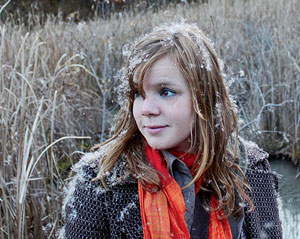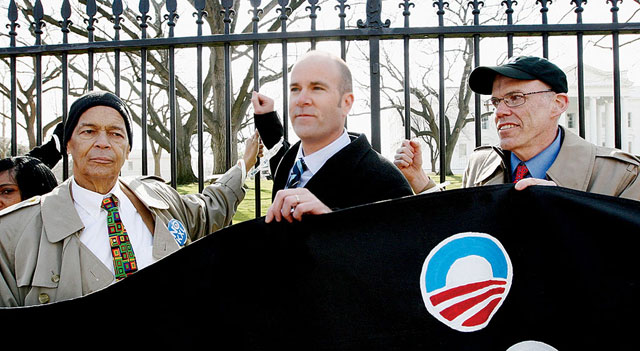sierraclub.org - sierra magazine - may/june 2013 - bulletin: news for members
By Della Watson
Grilled: Berenice Wiecki | Cuffed for the Climate
GRILLED
Invading the Privacy of the People Who Make the Club Tick
 Photo Courtesy of Alex Baker
Photo Courtesy of Alex Baker
Name: Berenice Wiecki
Location: Madison, Wisconsin
Contribution: Treasurer, Four Lakes Group
Website: 4lakes.org
You grew up in France and returned for six months during college. How do environmental practices in the United States compare to those in France?
First of all, French people walk everywhere. There are trash and recycling bins everywhere, very accessible—aluminum, glass, plastic, and paper recycling bins all in a row. I take pictures of those things when I visit and think, "This is what it should look like."
What's the first thing that you have to eat when you visit?
The pastries. I always gain weight when I go.
You graduated from the University of Wisconsin-Whitewater in 2010. Did you go to any college parties?
A few, I guess. Not a ton.
How did you deal with all the plastic cups?
It really annoyed me, actually. They probably never even thought about recycling the plastic. But when I had people over, I used actual glasses.
Last fall, you received the John Muir Chapter's New Activist Award. How do you help the Sierra Club reach out to young People?
We've had events like a happy hour meet-up and hiking to recruit younger people and make them want to get involved. Our group's Communications Committee has looked into things like making the newsletter more fun to read and adding a blog to our website to make it more interactive.
How do you say "I am an environmental crusader" in French?
Je suis un croise environnementale. Also, Je suis un chef dans le sauvegarde de la nature means "I am a leader in saving the environment, or nature."
—interview by Jess Krager
Do you know a Sierra Club volunteer who deserves recognition? Send nominations to submissions.sierra@sierraclub.org.
Cuffed for the Climate

From left, Julian Bond, Michael Brune, and Bill McKibben were among the 48 arrested for an act of civil disobedience. | Photo by Christine Irvine/Project Survival Media
On February 13, the Sierra Club engaged in an act of civil disobedience for the first time in its 120-year history. What follows is a firsthand account of the Washington, D.C., event by Eddie Scher, the Club's senior communications strategist for the Beyond Oil campaign.
The group walks slowly, with quiet poise, through the din of reporters jostling for position. One reporter yells at me in frustration, "There's too many reporters—I can't see." Just a month after the Sierra Club's Board of Directors made the historic decision to engage in civil disobedience to move President Barack Obama to take immediate action on climate change, 48 environmental and civil rights leaders, ranchers and farmers, youths and community activists march in two lines through Lafayette Park and across the long-closed Pennsylvania Avenue to the White House gate.
I pass plastic handcuffs to the protesters, who latch their wrists to the gate's black bars, as a line of police officers watch. The warm sun shines through the clouds for the first time on the cold and threatening day.
These 48—including Michael Brune, Allison Chin, Bill McKibben, Julian Bond, Daryl Hannah, Robert Kennedy Jr., and his son Conor—represent the millions of Americans who support immediate action on the climate crisis. With a third stern warning to disperse, the police close their barricades. One by one, they handcuff the protesters and lead them to the police vans.
Hours later, outside the U.S. Park Police station by the Anacostia River, the protesters gradually emerge through a cold drizzling rain to the warm greeting of a small but enthusiastic crowd of supporters. As if on cue, a bald eagle passes overhead. —Eddie Scher